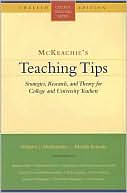Resources for IEP Administrators
[AA to BA]
Commission on Collegiate Interpreter Education (CCIE)
CCIE's mission is to promote professionalism in the field of interpreter education through:
- The accreditation of professional preparation programs,
- The development and revision of interpreter education standards,
- The encouragement of excellence in program development,
- A national and international dialogue on the preservation and advancement of standards in the field of interpreter and higher education, and
- The application of the knowledge, skills, and ethics of the profession.
Department Chair Online Resource Center
This is an excellent free resource for Department Chairs and Program Administrators. The primary menu includes topics such as: “Chair as Leader,” “Chair and Faculty,” “Resource Management.” The “Chair as Leader” includes a list of resources (mostly PDF documents) that can be downloaded. Topics are interesting: how can I support adjuncts, how can I evaluate my faculty, etc.
Learning-styles-online.com
This is a great resource to learn about your own learning styles, and to understand the diversity in our students’ styles. It is a free website that offers a “test” so you can identify your own styles; many instructors require students to take this at the beginning of a course so students can understand their own differences and instructors can be sure to offer a variety of activities to address different styles.
 McKeachie, Wilbert J. and Svinicki, Marilla. 2006. McKeachie’s Teaching Tips, 12th edition. Boston: Houghton Mifflin. McKeachie, Wilbert J. and Svinicki, Marilla. 2006. McKeachie’s Teaching Tips, 12th edition. Boston: Houghton Mifflin.
ISBN 0-618-51556-9
This is an excellent book that has been used in teacher preparation programs for many years. It is a “must-read” for both new and experienced instructors. This would be a great resource for a department to use for ongoing or occasional discussions (i.e. learning communities) and to ensure a more cohesive curriculum. It begins with an overview of the college culture, presents a countdown to prepare for teaching a course, meeting a class for the first time, etc. This book has helpful information for every teacher, from the novice to the experienced.
American Council on Education
On Course: Helping college educators promote student success
Click on “student success strategies” and you’ll see an incredible list of activities. Each activity has specific information so you can actually adapt the activity and re-create it in your own class, in your own discipline. There is a wealth of information here, the kind of place where one can peruse and find a new idea for a class or select pieces that would enhance what you’re already doing. Also, take time to click on the other options – lots of good ideas floating around that are grounded in pedagogy.
RubiStar
This is a free, online tool to help instructors create rubrics. It offers many rubrics and also stores them for you. There’s an online “tutorial” to help get started – a great site! Take a bit of time and look at this; if you already use rubrics, it’s a good way to self assess whether they are appropriate and if you’ve never used one but always wanted to try – this is the place. You have to register, but it’s free.
Journal on Excellence in College Teaching
ISSN 1052-4800, journal (check your library)
This is an excellent journal for faculty at universities and two- and four-year colleges. It offers discussions on how to increase student learning through effective teaching and offers enthusiasm for the profession of teaching. Many colleges and universities have online subscriptions for all faculty – ask! The online version allows for easy downloads of specific articles if you are subscribed.
Journal of Interpretation
The Journal of Interpretation (JOI) contains articles, research, reports, and commentaries that examine signed or spoken language interpretation and translation. The journal reflects a broad, interdisciplinary approach and serves as a forum for ideas from diverse theoretical and applied fields of interpretation and translation. The journal is included with RID membership. Individual copies of past issues are sold separately. To request a copy of the table of contents from past issues, please send an email to publications@rid.org ISBN 0882-7893
University of Iowa, Center for Teaching
This website offers a “teaching goals inventory” which helps an instructor look at one course and analyze the goals he/she plans to include. This is very valuable when either creating a course or re-organizing a course, a great way to begin to reflect upon what is truly important (since there is never enough time to include everything we think is important).
University of Virginia, Teaching Resource Center
This is an extensive site, categorized by topics such as “Course Development and Design,” “Grading” and much more. Each topic then has numerous articles that address that topic; for example, the “Grading” category has an excellent article to help one begin using rubrics (what to consider for each category, how to actually use it, etc). The articles are clear, easy to read, meant to help the instructor improve (rather than a theoretical discussion of the topic). Great information here and lots of topics – definitely something for everyone. Prepared by Christine Monikowski, Ph.D.
|








 McKeachie, Wilbert J. and Svinicki, Marilla. 2006. McKeachie’s Teaching Tips, 12th edition. Boston: Houghton Mifflin.
McKeachie, Wilbert J. and Svinicki, Marilla. 2006. McKeachie’s Teaching Tips, 12th edition. Boston: Houghton Mifflin.